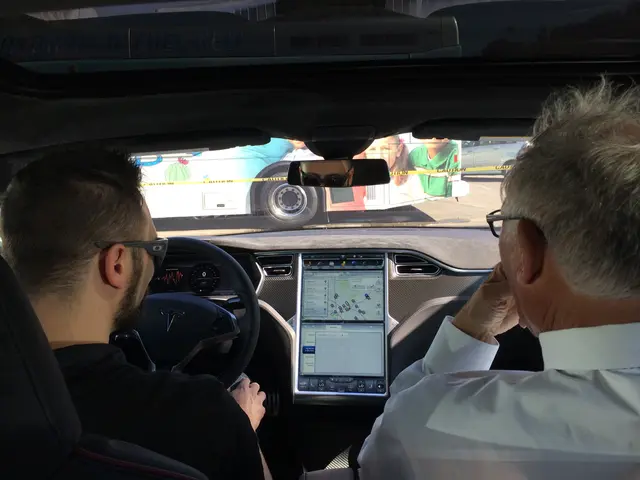Artificial Intelligence: Shaping the Future of Political Campaign Strategies
In the rapidly evolving world of politics, artificial intelligence (AI) is playing an increasingly significant role in shaping campaign strategies.
AI is being utilised to analyse vast amounts of data for pattern identification and outcome prediction. This enables real-time optimisation of marketing measures, allowing campaigns to dynamically adapt and automate routine tasks, thereby increasing return on investment (ROI) and freeing up marketers to focus on strategy and creativity.
One of the key advantages of AI in political marketing is its ability to hyper-personalise messages and content. By understanding voters' preferences and buying habits, campaigns can be tailored to individual constituents, leading to more effective engagement. AI tools such as predictive analytics platforms, sentiment analysis engines, and speech synthesis tools are being employed to achieve this level of personalisation.
AI also promises to give political marketers a significant advantage in reaching and persuading voters. For instance, AI can simulate opponent arguments, generate rebuttals, and analyse public discourse to prepare candidates effectively. Moreover, AI can monitor and analyse social media conversations in real-time, providing valuable feedback to refine strategy.
However, the use of AI-generated synthetic media like deepfakes raises legal and ethical red flags. To ensure responsible use of AI in politics, campaigns should adopt transparent practices, audit AI systems for bias, comply with data laws, and maintain human oversight in decision-making.
AI is also being used to manage a campaign's finances and resources efficiently. Predictive analytics helps optimise outreach strategies by forecasting voter behaviour, turnout, donation likelihood, and more. AI can also identify high-value contributors and automate personalised donation appeals for better conversion.
AI will become more deeply ingrained in political marketing, transforming how campaigns are run and offering new opportunities for engagement with constituents. It will help political marketers better understand voter behaviour, giving them a valuable tool to know how to win elections. AI will also allow for more personalised and targeted campaigns to reach a larger audience more effectively.
Lastly, AI systems are being developed to monitor online content for fake news or harmful narratives and trigger alerts or fact-checking responses. This ensures that the information being disseminated is accurate and trustworthy, fostering a more informed electorate.
In conclusion, AI is revolutionising political marketing, offering unprecedented accuracy and effectiveness in reaching and persuading voters. As we move forward, it is crucial that campaigns adopt responsible practices to ensure the ethical and fair use of AI in politics.
Read also:
- Elon Musk accused by Sam Altman of exploiting X for personal gain
- Comparing the value of top electric scooters: Kinetic DX versus Bajaj Chetak versus TVS iQube - Which one offers the best bang for the buck?
- Tech tycoon Elon Musk alleges Apple is preferring OpenAI, sparking potential lawsuits contemplation
- China's Automotive Landscape: Toyota's Innovative Strategy in Self-Driving Vehicles








